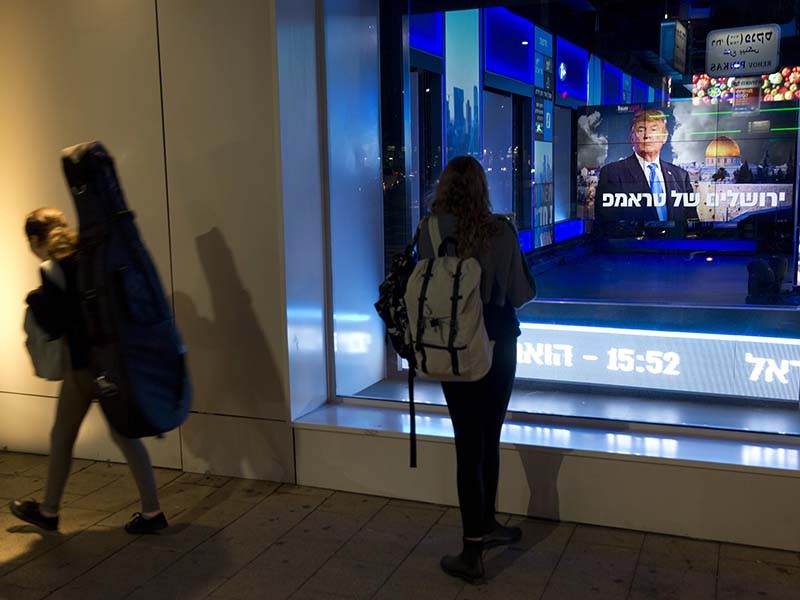Reactions mixed to Trump declaring Jerusalem to be Israel's capital
Many Jews in Israel were pleased, while other groups—including among U.S. Jews—were concerned.

Avihu Mizrachi Minagen’s family has run a men’s shoe store in the heart of West Jerusalem for 86 years—17 years longer than Israel has been a country.
He applauded U.S. president Donald Trump for declaring that Jerusalem is the capital of Israel and vowing to relocate the U.S. embassy there from Tel Aviv.
“It strengthens Jews’ historical, cultural, and religious claims to Jerusalem,” Minagen said. “The roots of the Jewish people are right here . . . the Western Wall, the Temple Mount. I’m glad the American president acknowledges this.”





